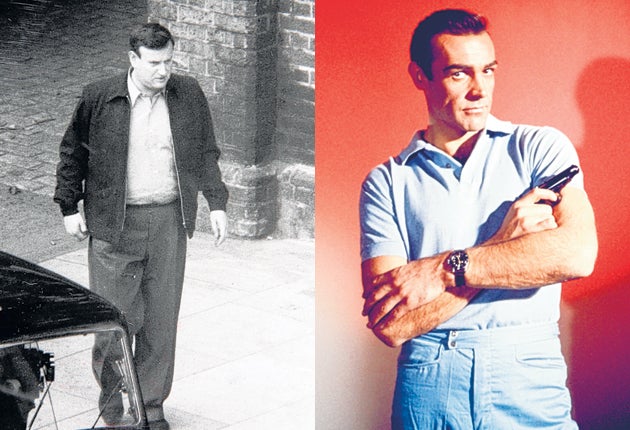Suspected of being a Soviet spy – the man who created Dr. No

Your support helps us to tell the story
From reproductive rights to climate change to Big Tech, The Independent is on the ground when the story is developing. Whether it's investigating the financials of Elon Musk's pro-Trump PAC or producing our latest documentary, 'The A Word', which shines a light on the American women fighting for reproductive rights, we know how important it is to parse out the facts from the messaging.
At such a critical moment in US history, we need reporters on the ground. Your donation allows us to keep sending journalists to speak to both sides of the story.
The Independent is trusted by Americans across the entire political spectrum. And unlike many other quality news outlets, we choose not to lock Americans out of our reporting and analysis with paywalls. We believe quality journalism should be available to everyone, paid for by those who can afford it.
Your support makes all the difference.As the writer who brought James Bond to life on the big screen, Wolf Mankowitz was well versed in the skulduggery of the British intelligence services. What he did not know was that MI5 returned the favour by investigating him for more than a decade as a suspected Soviet spy.
The playwright and renowned expert in Wedgwood porcelain, who is reputed to have made the introduction which led to the 007 film franchise and who later became a scriptwriter on two of the movies, was monitored by the Security Service after it was told that he became a "pure Marxist" while studying English at Cambridge University during the Second World War.
The son of Russian-Jewish émigrés in London's East End, Mankowitz was pursued as part of an MI5 operation to weed out potential Communist agents sanctioned by its then director general, Sir Percy Sillitoe.
Documents released at the National Archives in Kew, west London, show that Mankowitz, later the author of the screenplay for Casino Royale and the first draft of Dr No, even fell foul of a warning from MI5 to the BBC that a "security risk would exist" if he accessed classified information. He was only as an occasional contributor to what became Radio 3 and supplied a translation of Chekhov's The Bear.
But the Security Service felt it had grounds for ordering an inquiry into the nature of his political beliefs between 1944 and the late 1950s after it emerged that his wife, Ann, had been a Communist Party member at Cambridge.
One MI5 memo asking for a report on Mankowitz's wartime record in the Royal Army Education Corps in 1945 said: "This man is known to me as the husband of a Communist Party member and is himself a convinced Marxist. I think there is little doubt that he too is a party member and I should be glad to have a general report on him."
Over the next 16 years, agents collected information on Mankowitz as he moved around Britain, intercepting telegrams and phone calls as well as photographing him during visits to the Soviet consulate to apply for visas to visit Moscow as part of his membership of British-Soviet Friendship Society.
The documents suggest that MI5 began to lose interest in Mankowitz, who ran an antiques shop in London's Piccadilly specialising in Wedgwood china, when his career as a screenwriter and impresario began to take off. After writing two successful novels and films, Make Me An Offer and A Kid for Two Farthings, Mankowitz became a significant figure in British film and introduced the producers Harry Saltzman and Albert Broccoli to each other before they decided to start making the James Bond movies.
As a reward, they asked Mankowitz to write the first draft of the script for Dr No but the writer withdrew from the project after seeing early rushes and fearing it would ruin his reputation. By the time he asked for his name to be reinstated, the prints had been made and it was too late.
Grudgingly, MI5 decided that Mankowitz no longer presented a threat to national security, noting his "considerable success" in his film career and that he had called for the withdrawal of Soviet troops from Hungary in 1956.
The file shows that he turned down an invitation from Moscow to attend the Sixth World Festival of Youth and Students because he was too busy filming. Gered Mankowitz, the renowned photographer and one of Wolf's three sons, told The Independent: "I had no idea that Wolf had been investigated by MI5 and can't really understand why he should have been."
Join our commenting forum
Join thought-provoking conversations, follow other Independent readers and see their replies
Comments